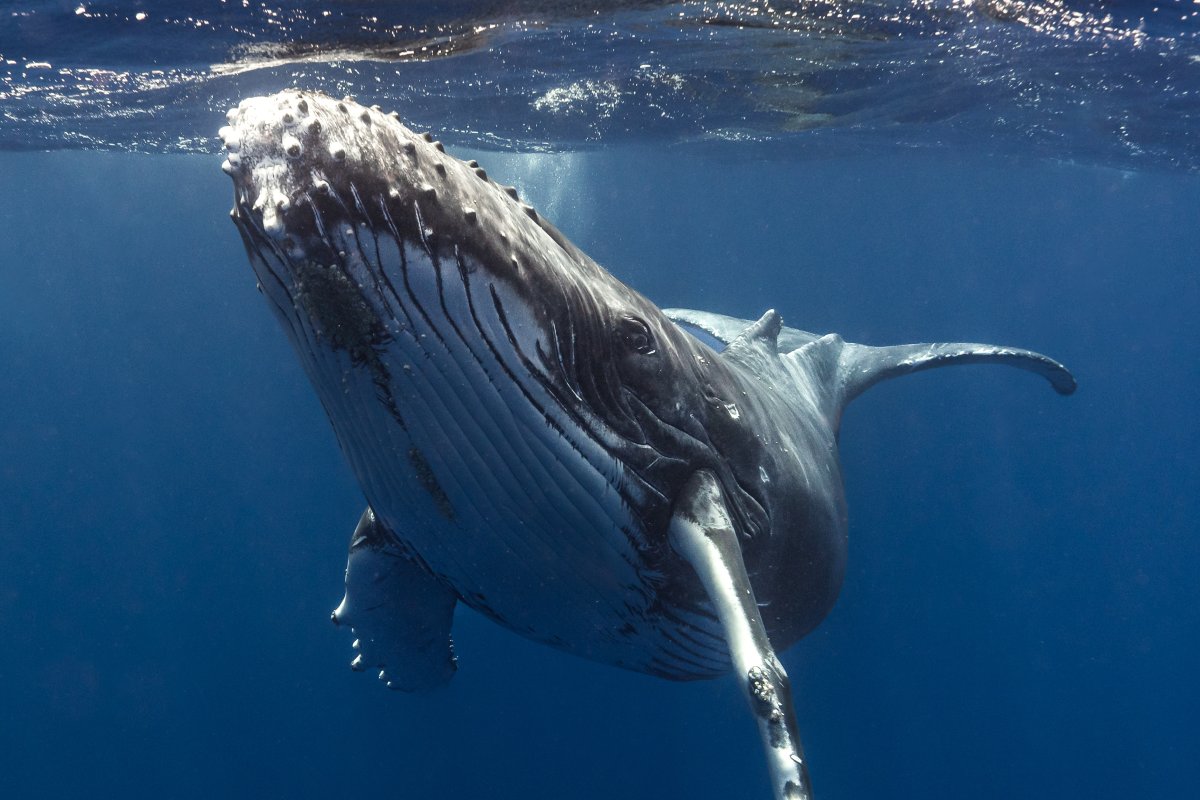Humpback whales are struggling to communicate due to noisy humans, a new study has suggested.
The new study published in the journal Nature, studied the unique vocalizations of whales that are made with their larynx, or voice box.
They found that these vocalizations only fit within a certain frequency, which can easily be drowned out by human-made noises such as shipping vessels.
"[D]espite their amazing physiology they literally cannot escape the noise humans make in the oceans," said Coen Elemans, a professor at the Department of Biology at the University of Southern Denmark, in a summary of the findings.
Scientists already know that whale song is vital for the species to communicate with each other. However there are many mysteries shrouding this form of vocalization.

Coen Elemans and colleagues set to find out more, by studying the larynges of three baleen whales, including minke and humpback whales.
Using scanning and modeling techniques, they were able to reconstruct how these whale vocalizations occur, the study reported. They discovered that the sound was mainly produced by "aerodynamic vibrations" which allow the whales to make the sound without inhaling water.
They also found that these sounds can reach epic distances through water, at a maximum frequency of 300 Hz and maximum depth of 100 meters (nearly 330 feet).
And, after studying the vocal structures, the scientists also found that it was impossible for the whales to produce a sound at a higher frequency than this.
This means that these whales can only produce a sound in the same range as the noise of shipping vessels. This therefore means vessels could drown out their vital vocalizations, hindering the whale's ability to communicate.
"Even though humans hunted whales close to the brink of extinction, they made very little effort in trying to learn about their physiology", Magnus Wahlberg, whale expert at University of Southern Denmark and co-author on the study, said in a summary of the findings. "Strandings are unique and rare opportunities to learn about these amazing animals, but even then, it is very hard to study physiology, because the tissue decays so fast. Whales are known to explode on the beach."
Many whale species have been subject to threats from humans, whether that is entanglement in fishing gear, or disruption to their ocean environment caused by noises or strikes.
The drowning out of their vocalizations could cause negative effects for these highly social whales, who rely on these calls for many things, including protection and prey.
"Regrettably, the frequency range and maximum communication depth of 100 meters we predict overlaps completely with the dominant frequency range and depth of human-made noise caused by shipping traffic," Elemans said.
"The first acoustic recordings of humpback whale song by Roger and Katy Payne in 1970 resonated with humanity profoundly, started the flourishing field of marine bioacoustics, and sparked global interest in marine conservation efforts. These recordings were so politically important then that they are aboard the Voyager space missions. Compared to the seventies, our oceans are now even more filled with human-made noise from shipping lanes, drilling activity and seismic guns. We need strict regulations for such noise, because these whales are dependent on sound for communication."
Do you have a tip on a science story that Newsweek should be covering? Do you have a question about whales? Let us know via science@newsweek.com.
Uncommon Knowledge
Newsweek is committed to challenging conventional wisdom and finding connections in the search for common ground.
Newsweek is committed to challenging conventional wisdom and finding connections in the search for common ground.
About the writer
Robyn White is a Newsweek Nature Reporter based in London, UK. Her focus is reporting on wildlife, science and the ... Read more
To read how Newsweek uses AI as a newsroom tool, Click here.






